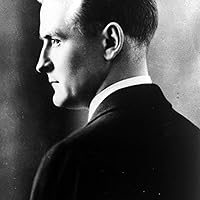Dehumanization Quotes
Quotes tagged as "dehumanization"
Showing 1-30 of 96

“Unless one lives and loves in the trenches, it is difficult to remember that the war against dehumanization is ceaseless.”
―
―

“Institutionalized rejection of difference is an absolute necessity in a profit economy which needs outsiders as surplus people.”
―
―

“The human need to be visible is countered by the need to be invisible to avoid further abuse, and the need for intimacy and the dread of abuse, all pose insoluble dichotomies which promote further withdrawal from human contact, which reinforces the sense of dehumanisation.”
― Introduction to Counselling Survivors of Interpersonal Trauma
― Introduction to Counselling Survivors of Interpersonal Trauma

“But on Kwajalein, the guards sought to deprive them of something that had sustained them even as all else had been lost: dignity. This self-respect and sense of self-worth, the innermost armament of the soul, lies at the heart of humanness; to be deprived of it is to be dehumanized, to be cleaved from, and cast below, mankind.”
― Unbroken: A World War II Story of Survival, Resilience and Redemption
― Unbroken: A World War II Story of Survival, Resilience and Redemption

“On the Bigotry of Culture:
: it presented us with culture, with thought as something justified in itself, that is, which requires no justification but is valid by it's own essence, whatever its concrete employment and content maybe. Human life was to put itself at the service of culture because only thus would it become charged with value. From which it would follow that human life, our pure existence was, in itself, a mean and worthless thing.”
― The Dehumanization of Art and Other Essays on Art, Culture and Literature
: it presented us with culture, with thought as something justified in itself, that is, which requires no justification but is valid by it's own essence, whatever its concrete employment and content maybe. Human life was to put itself at the service of culture because only thus would it become charged with value. From which it would follow that human life, our pure existence was, in itself, a mean and worthless thing.”
― The Dehumanization of Art and Other Essays on Art, Culture and Literature

“While we can all accept that bullying and abuse betray a lack or loss of respect for other human beings, there is a deeper issue: the devaluing of human life; and that in turn indicates a lack or loss of respect for the Giver of human life and dignity, God Himself. The message a bully sends is a mockery of God's handiwork, a lie that slanders God's nature and negates His love for us.”
― The Wounded Spirit
― The Wounded Spirit

“Both parties can consent to one-sided sex, but that should not be the bar set for a healthy relationship.
Just because it's not rape doesn't mean it isn't dehumanizing.”
― Non-Toxic Masculinity: Recovering Healthy Male Sexuality
Just because it's not rape doesn't mean it isn't dehumanizing.”
― Non-Toxic Masculinity: Recovering Healthy Male Sexuality

“One West Indian lady, weighed down with bags of shopping, gave us a big, sunny grin.
'Don't you two make a pretty picture,' she said.
No one had engaged me in conversation on the streets around my flat in all the months I'd lived here. It was odd, but also amazing. It was as if my Harry Potter invisibility cloak had slipped off my shoulders.”
― A Street Cat Named Bob: How One Man and His Cat Found Hope on the Streets
'Don't you two make a pretty picture,' she said.
No one had engaged me in conversation on the streets around my flat in all the months I'd lived here. It was odd, but also amazing. It was as if my Harry Potter invisibility cloak had slipped off my shoulders.”
― A Street Cat Named Bob: How One Man and His Cat Found Hope on the Streets

“Today it is quite clear that Nazi anti-Semitism had nothing to do with the virtues or vices of the Jews. [ ] It is something new in the history of the world: an attempt to deny humans the solidarity of every species that enables it to survive; to turn human predatory instincts, that are normally directed against other animals, against members of their own species, and to make a whole nation into a pack of hunting hounds. Once the violence and readiness to kill that lies beneath the surface of human nature has been awakened and turned against other humans, and even made into a duty, it is a simpler matter to change the target. That can be clearly seen today; instead of "Jews", one can just say as easily say "Czechs" or "Poles" or anyone else.”
― Defying Hitler
― Defying Hitler

“When greedy consumption is the order of the day, dehumanization becomes acceptable. Then, treating people like objects is not only acceptable but is required behavior.”
― All About Love: New Visions
― All About Love: New Visions

“After spending a decade studying belonging, authenticity, and shame, I can say for certain that we are hardwired for connection--emotionally, physically, and spiritually. I'm not suggesting that we engage in a deep, meaningful relationship with the man who works at the cleaners or the woman who works at the drive-through, but I am suggesting that we stop dehumanizing people and start looking them in the eye when we speak to them. If we don't have the energy or time to do that, we should stay at home.”
― Daring Greatly: How the Courage to Be Vulnerable Transforms the Way We Live, Love, Parent, and Lead
― Daring Greatly: How the Courage to Be Vulnerable Transforms the Way We Live, Love, Parent, and Lead

“Yet the greatest tragedy of the twenty-first century may be that we have learned so little from the greatest tragedies of the twentieth century. Apparently catastrophe lessons need to be experienced firsthand by each generation. So, here are some refreshers: Nuclear conflict may mean the end of life on this planet. Mass dehumanization can lead to genocide. The death of an independent press can lead to tyranny and render a population helpless to protect itself against a government that disdains law and conscience.”
― Fallout: The Hiroshima Cover-up and the Reporter Who Revealed It to the World
― Fallout: The Hiroshima Cover-up and the Reporter Who Revealed It to the World

“It is not uncommon for some Christians who are privately affirming to decide that they can work for "change from within” without publicly acknowledging that belief. The result is that this allows (even suggests to) others that they share their unaffirming position. After all, it is the default position more Christians hold. It communicates the same thing to 2SLGBTQIA+ people as well.
The problem with this is that, despite their privately affirming beliefs, their advocacy is functionally predicated on the dehumanizing ideas and postures that are demonstrably harmful. By default it supports the status quo of oppression rather than actively challenging and changing it. Put simply, for their advocacy to work in the way they hope, they have to give tacit endorsement to dehumanizing and oppressive belief, practices, and systems.”
―
The problem with this is that, despite their privately affirming beliefs, their advocacy is functionally predicated on the dehumanizing ideas and postures that are demonstrably harmful. By default it supports the status quo of oppression rather than actively challenging and changing it. Put simply, for their advocacy to work in the way they hope, they have to give tacit endorsement to dehumanizing and oppressive belief, practices, and systems.”
―
“The ultimate form of dehumanization is not to reduce humans to the rank of animals, but to elevate animals to the rank of humans; the ultimate form of depersonalization is not to take away the personhood of subjects, but to give personhood to objects; and the ultimate form of demoralization is not to lower morality to the level of caprice, but to raise caprice to the level of morality.”
―
―

“English: "The point is not to have original opinions, but to have the right ones."
Česky: „Nejde tolik o to mít originální, nýbrž správné názory.”
― Vtiposcifilo-z/s-ofie
Česky: „Nejde tolik o to mít originální, nýbrž správné názory.”
― Vtiposcifilo-z/s-ofie
“Both parties can consent to one-sided sex, but that should not be the bar set for a healthy relationship.
Just because it's not rape doesn't mean it isn't dehumanizing.”
―
Just because it's not rape doesn't mean it isn't dehumanizing.”
―

“When we treat people as objects, we dehumanize them. We do something really terrible to their souls and to our own. Martin Buber, an Austrian-born philosopher, wrote about the differences between an I-it relationship and an I-you relationship. An I-it relationship is basically what we create when we are in transactions with people whom we treat like objects--people who are simply there to serve us or complete a task. I-you relationships are characterized by human connection and empathy.”
― Daring Greatly: How the Courage to Be Vulnerable Transforms the Way We Live, Love, Parent, and Lead
― Daring Greatly: How the Courage to Be Vulnerable Transforms the Way We Live, Love, Parent, and Lead
“Now, we need to take a step back and look at one of the most important metajustifications that serves as a prerequisite for nearly all forms of violence—depersonalization of the proposed victim. It is my contention that dehumanizing someone, robbing them of their human dignity and worth in our thoughts and in our actions, is the first necessary step along the demonic path that may ultimately lead us to the killing of that person.”
― Consistently Pro-Life: The Ethics of Bloodshed in Ancient Christianity
― Consistently Pro-Life: The Ethics of Bloodshed in Ancient Christianity
“The power of language to color one's view of reality is profound. In many instances, the most significant factor determining how an object will be perceived is not the nature of the object itself, but the words employed to characterize it. Operating through the lenses of contrasting linguistic symbols, two persons looking at the same phenomenon are likely to come up with sharply divergent observations. Words can also act as a force for justice or a weapon of repression, an instrument of enlightenment or a source of darkness.”
― Consistently Opposing Killing: From Abortion to Assisted Suicide, the Death Penalty, and War
― Consistently Opposing Killing: From Abortion to Assisted Suicide, the Death Penalty, and War
“Linguistic reduction of victims to an insignificant, despicable, or dangerous level helps stimulate the kind of destructive thinking that leads ultimately to destructive actions. The victims are cast in such a negative or inconsequential light that whatever is done to them, no matter how horrendous, is considered perfectly justifiable.”
― Consistently Opposing Killing: From Abortion to Assisted Suicide, the Death Penalty, and War
― Consistently Opposing Killing: From Abortion to Assisted Suicide, the Death Penalty, and War

“When the first atomic bomb was exploded successfully, Oppenheimer and Fermi flashed the code word: Baby satisfactorily born. A most befitting yell o triumph for the coming of age of technological civilization and for the death of culture. Since then hundreds of thousands of babies were satisfactorily born with defective genes or died of leukemia brought on by radiation. Compulsive creation, genius, what the hell do you want, clap censorship on science?”
― The Gasp
― The Gasp

“How hard they work to define the slave as inhuman, savage, when in fact the definition of the inhuman describes overwhelmingly the punisher. When they rest, exhausted, between bouts of lashing, the punishment is more sadistic than corrective. If sustained whipping tires the lasher, and he or she must take a series of breaks before continuing, what good does its duration do to the whipped? Such extreme pain seems to be designed for the pleasure of the one with the lash. The necessity of rendering the slave a foreign species appears to be a desperate attempt to confirm one’s own self as normal. The urgency of distinguishing between those who belong to the human race and those who are decidedly non-human is so powerful the spotlight turns away and shines not on the object of degradation but on its creator. Even assuming exaggeration by the slaves, the sensibility of slave owners is gothic. It’s as though they are shouting, “I am not a beast! I’m not a beast! I torture the helpless to prove I am not weak.” The danger of sympathizing with the stranger is the possibility of becoming a stranger. To lose one’s racial-ized rank is to lose one’s own valued and enshrined difference.”
― The Origin of Others
― The Origin of Others

“Perhaps it is this attitude, this mental turning away, or perhaps the combination of all these responses to calamity brought upon others, that one of Saul Bellow's characters, Artur Sammler, a survivor of the shooting pits in Poland, has in mind when he says: 'I know now that humankind marks certain people for death. Against them there shuts a door”
― The Contract of Mutual Indifference: Political Philosophy After the Holocaust
― The Contract of Mutual Indifference: Political Philosophy After the Holocaust

“It is harder to dehumanize a single individual that you have gotten the chance to know. Which is why people and groups who seek power and division do not bother with dehumanizing and individual. Better to attach a stigma a taint of pollution to an entire group.”
― Caste: The Origins of Our Discontents
― Caste: The Origins of Our Discontents
“Throughout this conversation, it’s important to remember that you’re communicating with a real human being — a person with feelings, stories, history, trauma, heart, and the same needs as you to be heard, understood, and most importantly, respected. Kashdan said that the now-common, overused practice of labeling people as narcissists, gaslighters, and toxic can make us dehumanize other people, especially when their opinions don’t reflect our values.
That’s why it’s important to listen to others and understand their point of view. Humans have the ability to change and improve themselves. Minson highlights that when we see that potential in those we disagree with, we’re likely to engage with them more effectively. It’s important to avoid seeing people as “good” or “bad.” This will help you extend some grace and empathy to the other person.”
―
That’s why it’s important to listen to others and understand their point of view. Humans have the ability to change and improve themselves. Minson highlights that when we see that potential in those we disagree with, we’re likely to engage with them more effectively. It’s important to avoid seeing people as “good” or “bad.” This will help you extend some grace and empathy to the other person.”
―

“Because they watch (us). They're taught how to, from school. They are taught to view our bodies (selves) as objects.”
― Assembly
― Assembly
“who is more barbaric? The alleged cannibalistic savages, who at least waited until their victims were dead before they cooked and ate them? Or the European slave traders who thrived on live meat, that is, the exploitation of these human 'animals'?”
― Humans and Other Animals: Cross-Cultural Perspectives on Human-Animal Interactions
― Humans and Other Animals: Cross-Cultural Perspectives on Human-Animal Interactions
“[W]ho is more barbaric? The alleged cannibalistic savages, who at least waited until their victims were dead before they cooked and ate them? Or the European slave traders who thrived on live meat, that is, the exploitation of these human 'animals'?”
― Humans and Other Animals: Cross-Cultural Perspectives on Human-Animal Interactions
― Humans and Other Animals: Cross-Cultural Perspectives on Human-Animal Interactions
All Quotes
|
My Quotes
|
Add A Quote
Browse By Tag
- Love Quotes 97k
- Life Quotes 75.5k
- Inspirational Quotes 72.5k
- Humor Quotes 43.5k
- Philosophy Quotes 29.5k
- Inspirational Quotes Quotes 27k
- God Quotes 26k
- Truth Quotes 23.5k
- Wisdom Quotes 23.5k
- Romance Quotes 23k
- Poetry Quotes 22k
- Death Quotes 20k
- Happiness Quotes 18.5k
- Life Lessons Quotes 18.5k
- Hope Quotes 18k
- Faith Quotes 18k
- Quotes Quotes 16.5k
- Inspiration Quotes 16.5k
- Spirituality Quotes 15k
- Religion Quotes 15k
- Motivational Quotes 15k
- Writing Quotes 14.5k
- Relationships Quotes 14.5k
- Life Quotes Quotes 14k
- Love Quotes Quotes 13.5k
- Success Quotes 13.5k
- Time Quotes 12.5k
- Motivation Quotes 12k
- Science Quotes 11.5k
- Knowledge Quotes 11k



